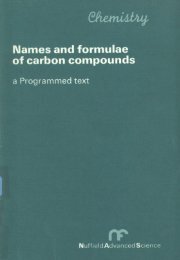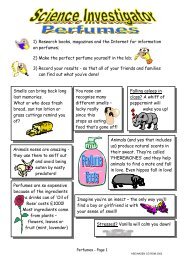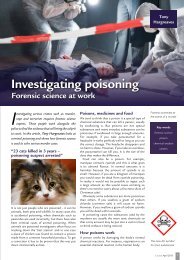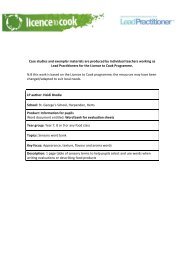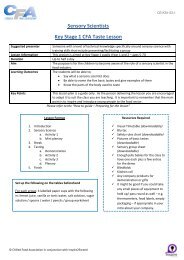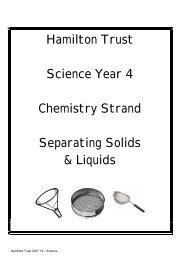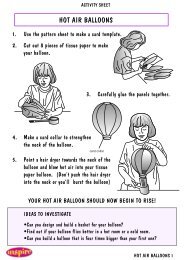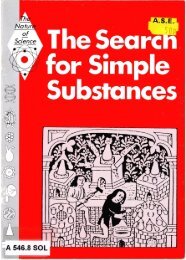Louis Pasteur by Nicola Kingsley - National STEM Centre
Louis Pasteur by Nicola Kingsley - National STEM Centre
Louis Pasteur by Nicola Kingsley - National STEM Centre
You also want an ePaper? Increase the reach of your titles
YUMPU automatically turns print PDFs into web optimized ePapers that Google loves.
Lister greets<br />
<strong>Pasteur</strong> at the<br />
Sorbonne<br />
24<br />
normally expect. Encouraged <strong>by</strong> the result, he expanded<br />
this new principle of "antisepsis" (which means "against<br />
rotting") and began washing his hands and medical<br />
instruments in weak carbolic acid to sterilise them before<br />
examining patients or performing operations. The effect<br />
was a remarkable decrease in infections. These simple<br />
practices began a revolution in hospitals which eventually<br />
saved millions of lives.<br />
As soon as he was sure his antiseptic methods worked,<br />
Lister published his findings, and wrote to <strong>Pasteur</strong>, telling<br />
him what he had achieved. <strong>Pasteur</strong> was delighted. Not only<br />
were lives being saved, but Lister's results were also<br />
evidence that supported the germ theory of disease.<br />
Shortly after this the Franco-Prussian war began. Patriotic<br />
<strong>Pasteur</strong> tried to join the army. The army would not have<br />
him. Quite apart from his paralysis, he was an important<br />
scientist and too useful to be wasted in battle. So <strong>Pasteur</strong><br />
spent the war putting his germ theory to use, travelling<br />
round military hospitals insisting that bandages and<br />
instruments be boiled to prevent infection.<br />
It is hard for us, living today, to imagine what life was like<br />
in <strong>Pasteur</strong>'s time. The average length of life was half what




